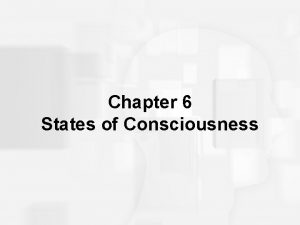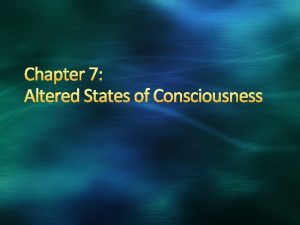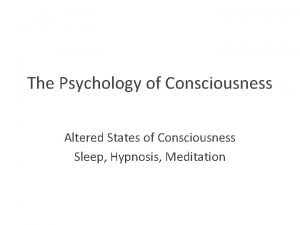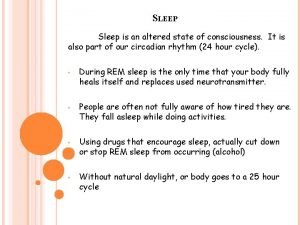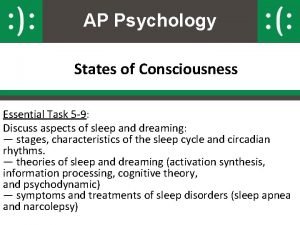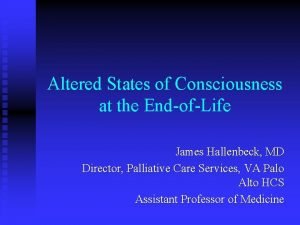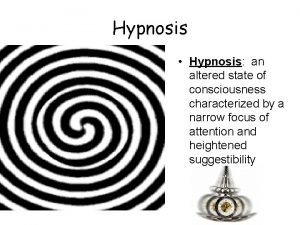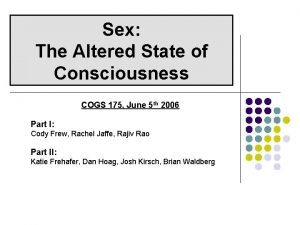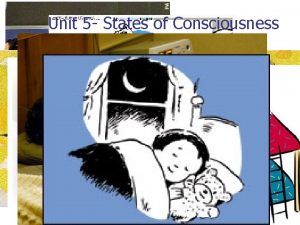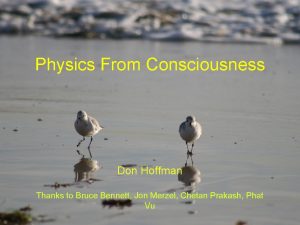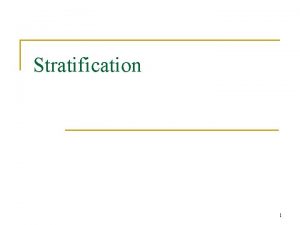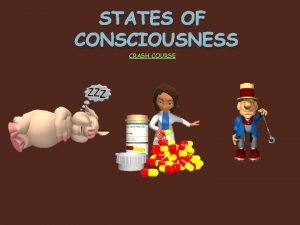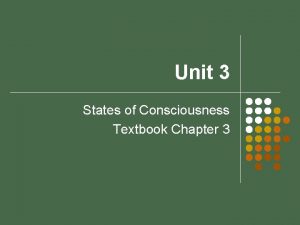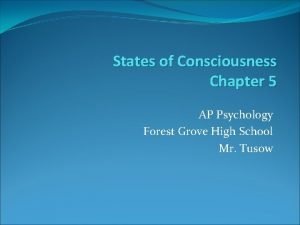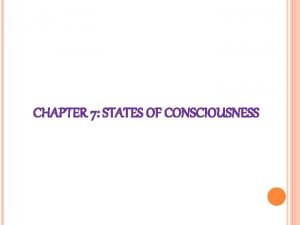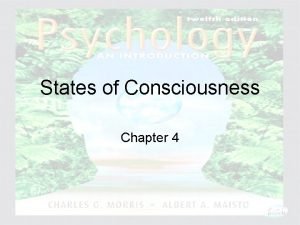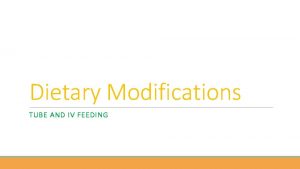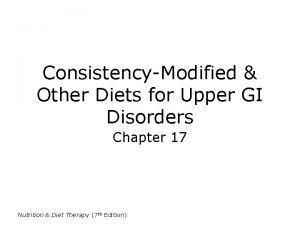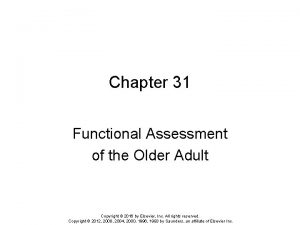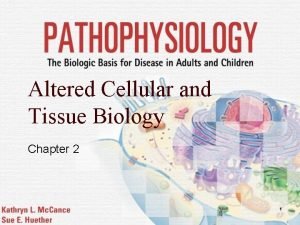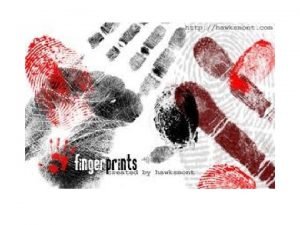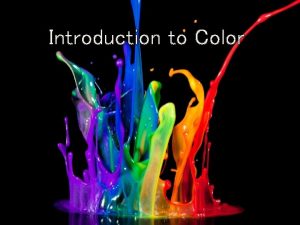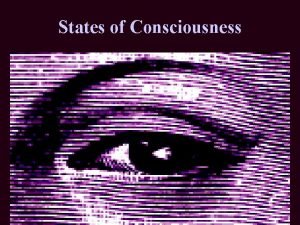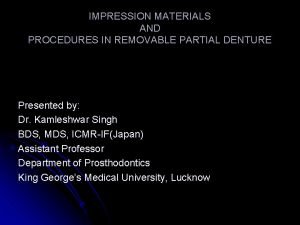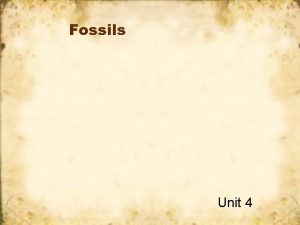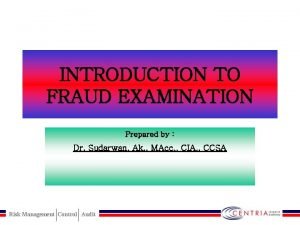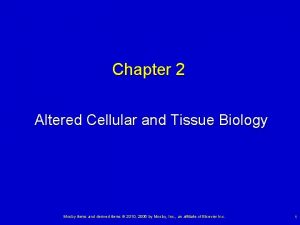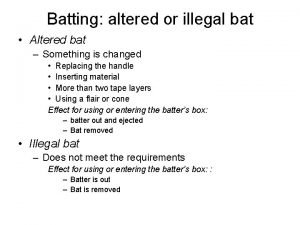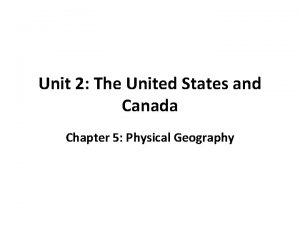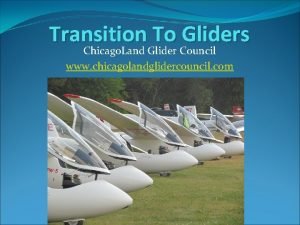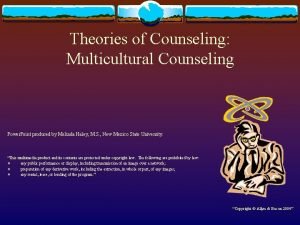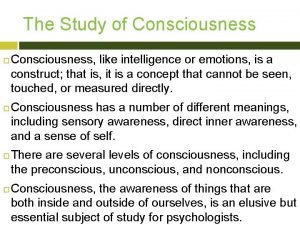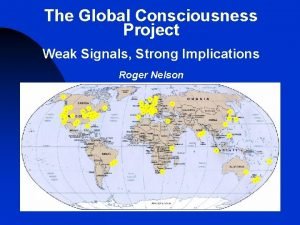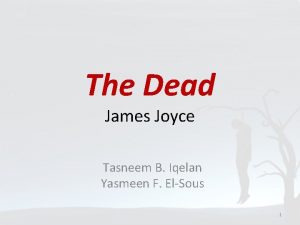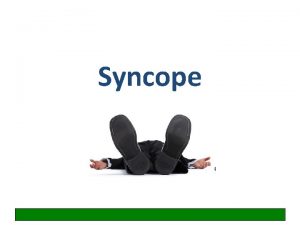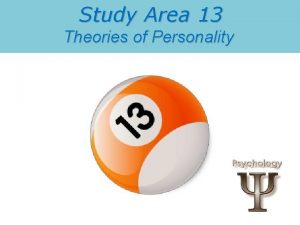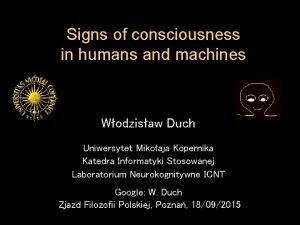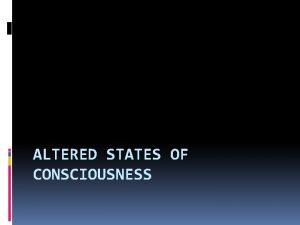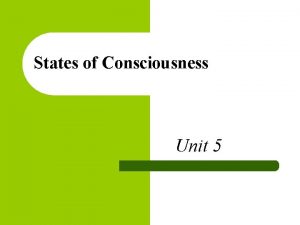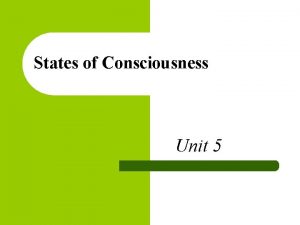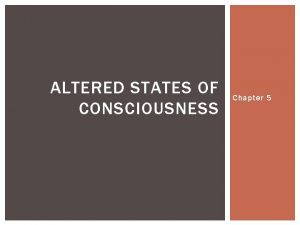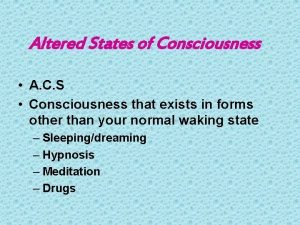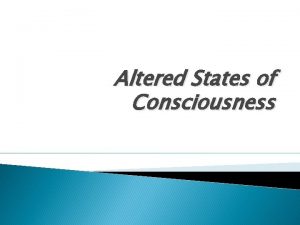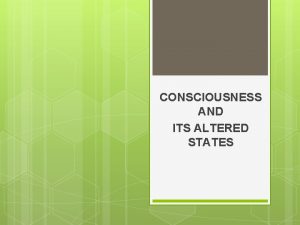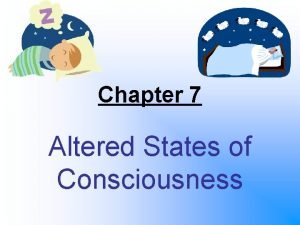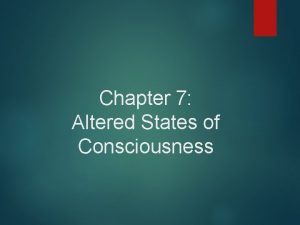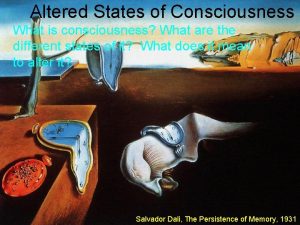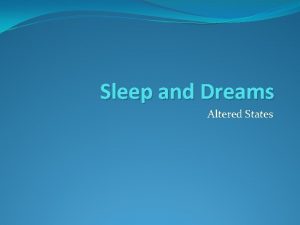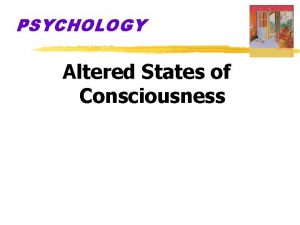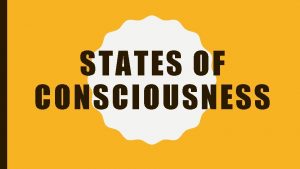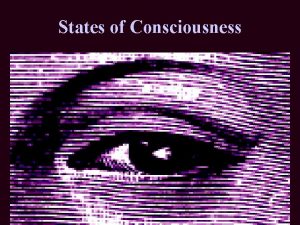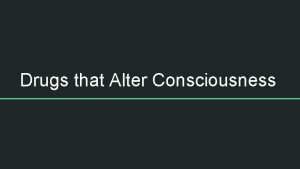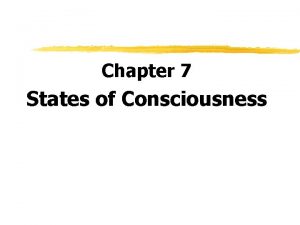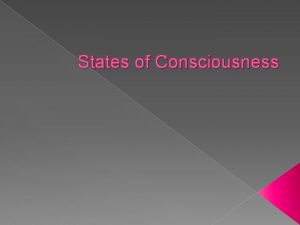States of Consciousness Unit 4 Consciousness Altered States



















































- Slides: 51

States of Consciousness Unit 4

Consciousness & Altered States of Consciousness l Awareness of oneself and one’s environment l Altered States: – Sleeping/Dreaming – Hypnosis – Influence of Drugs – Meditation

Sleep, Dreams, and Body Rhythms Module 20

Body Rhythms l l periodic physiological (physical) fluctuations that can affect functioning (body temperature, blood pressure, effectiveness of medicine) fall into three main categories: 1. Circadian Rhythms 2. Ultradian Rhythms 3. Infradian Rhythms

Circadian Rhythms l biological rhythms that occur approximately every 24 hours example: sleep-wake cycle l

Ultradian Rhythms l biological rhythms that occur more than once each day example: stages of sleep throughout the night l

Infradian Rhythms l biological rhythms that occur less than once a day (once a month or once a season) examples: women’s menstrual cycle bear’s winter hibernation bird’s migration south l

How & Why We Sleep

Hypothalamus l sleep control center in the brain monitors changes in light or dark in the environment l send messages to brain & body which changes levels of hormones (chemical messengers) in the body l

Melatonin l hormone secreted by pineal gland that helps regulate daily biological rhythms l linked to sleep-wake cycle – makes you drowsy l melatonin levels increase during the night & decreases with exposure to morning light

(Video Clip – Muscle Memory, Learning in Your Sleep) Why do we need to sleep? l two theories: – preservation/adaptation: we sleep at times of the night (or day) that maximize our safety & survival – restoration: recuperate from the wear & tear of the day (tissues restored, memories consolidated, things learned are reorganized) l rats deprived of all stages of sleep only live 3 weeks, deprived of REM sleep only 5 weeks

Sleep & Sleep Deficit

Are You Sleep Deprived? Quiz John B. Maas Answer True or False to each of the following statements: 1. 2. 3. 4. 5. 6. 7. 8. 9. 10. 11. 12. 13. 14. 15. I need an alarm clock in order to wake up at the appropriate time. It’s a struggle for me to get out of bed in the morning. Weekday mornings I hit the snooze bar several times to get more sleep I feel tired, irritable, and stressed out during the week. I have trouble concentrating and remembering. I feel slow with critical thinking, problem solving, and being creative. I often fall asleep watching TV. I often fall asleep in boring classes or lectures or in warm rooms. I often fall asleep after heavy meals. I often fall asleep while relaxing after dinner. I often fall asleep within five minutes of getting into bed. I often feel drowsy while driving. I often sleep extra hours on weekend mornings. I often need a nap to get through the day. I have dark circles around my eyes.

Are You Sleep Deprived? Quiz l l If you answered “true” to three or more items, you probably are not getting enough sleep Other Indicators: – – l If you feel drowsy during the day, even during boring activities, you haven't had enough sleep If you routinely fall asleep w/in 5 minutes of lying down, you probably have severe sleep deprivation Recommendation: – – go to bed 15 minutes earlier than usual every night for the next week continue by adding 15 more minutes each week – until you wake without an alarm clock and feel alert all day

Sleep Deprivation Effects l l l decreases efficiency of immune system functioning increases levels of cortisol (stress hormone) – linked to damage of brain cells responsible for learning & memory safety and accident issues: – – National Transportation Safety Board considers driver fatigue a bigger safety problem than alcohol use Driver fatigue is responsible for an estimated 100, 000 motor vehicle accidents and 1, 500 deaths each year

Sleep Deprivation (National Transportation Safety Board, 1995)

Sleep Deprivation Effects (cont. ) l contributes to: – hypertension (high blood pressure) – impaired concentration & judgment – slower reaction times – irritability – suppression of cancer-fighting immune cells – premature aging

(Video Clip – The Need for Sleep) Sleep Debt (you don’t have to write this) l How much sleep do you need? – – – Infants = 16 hours a day Teens = 9 hours a day Adults = 7 – 8 hours a day l l Some can function w/ as little as 5, others need 10 hrs The Sleep Debt – amount of sleep a person needs increases if s/he has been deprived of sleep in previous days; we don’t adapt to getting less sleep

Teens and Sleep

Teens & Sleep Trends l Teens get almost two hours less sleep now than 70 years ago – any thoughts on why? l 4 out of 5 students are “dangerously sleep deprived” – William Dement (sleep researcher) l Dement states a large sleep debt “makes you stupid”

Teens & Sleep: Delayed High School Start Times? Background Information: As a group, read and discuss each of the three articles on teens and sleeping. Create an Informational Poster or Write a Brief Essay Addressing the Following Q: Should Cobb County change the high school start time from 8: 30 to 10: 30 to better fit teens’ sleep-wake cycles? Poster Requirements: • minimum of 2 pictures • minimum of 15 sentences • address the opposing viewpoint • use research & facts discussed in class, from textbook, or from the video segment we watched Essay Requirements: • minimum of 3 paragraphs • address the opposing viewpoint • use research & facts discussed in class, from textbook, or from the video segment we watched

The Stages of Sleep

Electroencephalograph (EEG) l machine that amplifies & records waves of electrical activity that sweep across the brain’s surface l electrodes are placed on person’s scalp to measure brain waves

EEG

Stage 1 Sleep l breathing is slowed & brain waves become irregular l easy to wake the person (will insist they are not asleep) l will report having dreamlike sensations (falling) l rarely lasts longer than 5 minutes

Stage 1

Stage 2 Sleep l Deeper sleep w/ less sensory awareness l brain wave cycle slows & EEG spindles (small brain wave bursts) develop l first time through stage 2 last about 20 minutes l over the night, ½ of time asleep is spent in this stage

Stage 2 K-complex

Stages 3 & 4 Sleep l after about 30 minutes move to stages 3 & 4 l increase in delta waves (large & slow) l called slow-wave sleep or delta sleep l first time through stage 4 is about 30 minutes and is where one gets rejuvenated

Stage 3

Stage 4

REM Sleep

REM Sleep l stages 1 - 4 considered N-REM (non-REM sleep) l REM (Rapid Eye Movement) Sleep- eyes move quickly back and forth under lids l most dreaming & all very vivid dreams occur in REM sleep

REM Sleep l complete sleep cycle is 90 minutes l last 4 hours – alternate between Stage 2 & REM l REM sleep makes up about 25% of your nightly sleep (100 minutes/night) l We dream every night of our lives

REM Sleep

Paradoxical Sleep l during REM sleep brain wave patterns are similar to when a person is awake l pulse & breathing quickens l called paradoxical sleep – internally your body is aroused but the brainstem (pons) blocks messages from motor cortex – temporarily paralyzed (sleep paralysis)

Why Do We Dream?

Sigmund Freud’s Theory “Dreams are often most profound when they seem the most crazy. ” l earliest dream theory l dreams are the key to understanding our inner conflicts & are expressions of wish fulfillment l practiced dream interpretation (still practiced by some psychologists today)

Information-Processing Theory l dreams serve important memory-related function by sorting & sifting through day’s experiences l REM sleep helps memory storage l REM sleep increases during stressful times

Physiological Function Theory l neural activity during REM sleep provides stimulation of the brain. l brain develops fast during infancy – spend more time in REM sleep l pituitary gland secretes a growth hormone during delta sleep

Sleep Changes through Life

Activation-Synthesis Theory l dreams are the mind’s attempt to make sense of random neural firings in the brain as you sleep

What do you think… l Can dreams be interpreted? l In other words, do dreams have hidden meanings that can provide insight into the motivations and emotions of the dreamer? l Are dreams totally meaningless? Are they just products of an imagination that is finally allowed to run wild since the frontal lobes aren’t active?

Sleep Disorders & Sleep Problems

Insomnia l recurring problems falling asleep or staying asleep l sleeping pills tend to inhibit or suppress REM sleep; worsen the problem l alcohol suppresses REM sleep; also worsens the problem

How to increase the quality of your sleep: l l Don’t consume caffeinated beverages or foods after 3: 00 P. M. Get up at the same time every morning (even on weekends) Avoid nighttime activities that make you more alert (video games, arguments, running) Don’t stress when you can’t get to sleep; it’s normal to take 15 minutes or more to fall asleep

Sleep Apnea l l repeated awakenings as a result of not being able to breathe (may happen 400 + times a night) tend to be loud snorers typically male, overweight, over 40 most common treatment: Continuous Positive Airway Pressure machine – helps person breath during night

Narcolepsy l uncontrollable sleep attacks occurring when the nervous system gets aroused (often from strong emotion) l person goes directly into REM sleep l treatable with prescription drugs l onset of disorder accompanies puberty

Somnambulism l formal name for sleepwalking l starts in the deep stages of N-REM sleep l person can walk or talk but remembers nothing of the experience

Night Terrors l characterized by high arousal & appearance of being terrified (actually asleep) l happens a few hours after falling asleep; occurs during stage 4 sleep l occur mostly in children; seldom remember the event

Other Sleep Disorders Bruxism – teeth grinding l Enuresis – bed wetting l Myoclonus – sudden jerk of a body part occurring during stage 1 or 2 of sleep – everyone has occasional episodes of myoclonus l
 Lesson quiz 7-1 altered states of consciousness
Lesson quiz 7-1 altered states of consciousness Rem sleep def
Rem sleep def Chapter 7 altered states of consciousness
Chapter 7 altered states of consciousness Altered state of consciousness psychology
Altered state of consciousness psychology An altered state of consciousness
An altered state of consciousness Altered state of consciousness psychology
Altered state of consciousness psychology Altered state of consciousness psychology
Altered state of consciousness psychology Altered state of consciousness psychology
Altered state of consciousness psychology Is hypnosis an altered state of consciousness
Is hypnosis an altered state of consciousness Sex altered state of consciousness
Sex altered state of consciousness Unit 5 states of consciousness answers
Unit 5 states of consciousness answers Unit 5 states of consciousness
Unit 5 states of consciousness Horizontal mobility
Horizontal mobility Crash course psychology consciousness
Crash course psychology consciousness Altered states game
Altered states game 3 states of consciousness
3 states of consciousness States of consciousness ap psychology
States of consciousness ap psychology 7: states of consciousness psychology
7: states of consciousness psychology Chapter 7 states of consciousness
Chapter 7 states of consciousness Ap psychology states of consciousness
Ap psychology states of consciousness Example of altered feeding routes
Example of altered feeding routes Mechanically altered diet
Mechanically altered diet Altered cognition in older adults is commonly attributed to
Altered cognition in older adults is commonly attributed to Altered cellular and tissue biology
Altered cellular and tissue biology Altered cast impression
Altered cast impression Can fingerprints be altered or disguised
Can fingerprints be altered or disguised What are the primary colors and secondary colors
What are the primary colors and secondary colors What is a fossil
What is a fossil Altered state of conciousness
Altered state of conciousness Impression material for rpd
Impression material for rpd Where can trace fossils be found
Where can trace fossils be found Factors affecting support for distal extension bases
Factors affecting support for distal extension bases Altered skin integrity
Altered skin integrity Altered check
Altered check Altered cellular and tissue biology
Altered cellular and tissue biology Altered bat
Altered bat History of altered books
History of altered books Unit 10, unit 10 review tests, unit 10 general test
Unit 10, unit 10 review tests, unit 10 general test 11 free states
11 free states Southern states of america
Southern states of america Big states vs small states guard against tyranny
Big states vs small states guard against tyranny Many _____ people have settled in this megalopolis.
Many _____ people have settled in this megalopolis. Unit 2 the united states and canada worksheet answers
Unit 2 the united states and canada worksheet answers Mrs dalloway setting
Mrs dalloway setting Chicago gliders
Chicago gliders Multicultural counseling theory
Multicultural counseling theory Levels of consciousness examples
Levels of consciousness examples Global conciousness project
Global conciousness project James met is dead
James met is dead Loss of consciousness
Loss of consciousness Reciprocal determinism definition psychology
Reciprocal determinism definition psychology Signs of consciousness
Signs of consciousness
